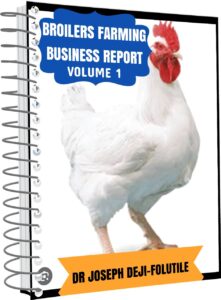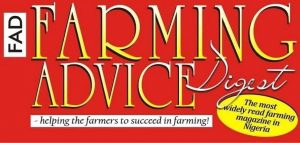🔥 E-book offer of the day 👇
Poultry farming business report volume 1
🎈How to know fake Agricultural inputs suppliers
Identifying fake agricultural inputs suppliers requires careful scrutiny and research. Here are some tips to help you determine if a supplier is genuine:
1. **Check Credentials and Certifications**: Legitimate suppliers typically have certifications or affiliations with reputable agricultural organizations or regulatory bodies. Verify these credentials to ensure authenticity.
Read also: Sustainable practices in vegetable farming
 Learn More
Learn More2. **Quality of Products**: Fake suppliers may offer products of inferior quality or with questionable efficacy. Ask for samples, check product labels for certifications or standards compliance, and compare with products from trusted suppliers.
3. **Consistency in Supply**: Reliable suppliers have a consistent supply chain and can provide products as promised. Inconsistent availability or delays in delivery could be a sign of a fake supplier.
4. **Transparent Pricing**: Genuine suppliers are transparent about pricing, including costs for products, shipping, and any additional fees. Be cautious of suppliers who provide vague or fluctuating prices.
5. **Customer Reviews and References**: Research online for reviews, testimonials, or references from other farmers or businesses who have used the supplier’s products. Positive feedback and a good reputation are indicators of a reliable supplier.

6. **Physical Address and Contact Information**: Legitimate suppliers have a physical address, phone number, and email address that you can use to contact them directly. Avoid suppliers who only communicate through vague online platforms or social media.
7. **Product Guarantees and Warranties**: Genuine suppliers often offer product guarantees or warranties to assure customers of quality and performance. Be wary of suppliers who do not provide any form of assurance.
8. **Compliance with Regulations**: Verify if the supplier complies with local regulations and standards for agricultural inputs. This includes safety regulations, labeling requirements, and environmental guidelines.
9. **Avoid Unrealistic Claims**: Fake suppliers may make unrealistic claims about the effectiveness or benefits of their products without scientific evidence or data to support these claims. Seek evidence-based information before making a purchase.
Read also: Four things to know about sustainability in pig farming
By conducting thorough research, asking questions, and verifying information, you can reduce the risk of dealing with fake agricultural inputs suppliers and ensure that you obtain high-quality and reliable products for your agricultural needs.
🌟Make this enriching ebook yours with a quick purchase: 39 fundamentals for poultry broiler production management
🧩CREATED BY DR JOSEPH DEJI-FOLUTILE
For more information and updates join our WhatsApp group HERE
Like/ Follow our page on Facebook HERE











